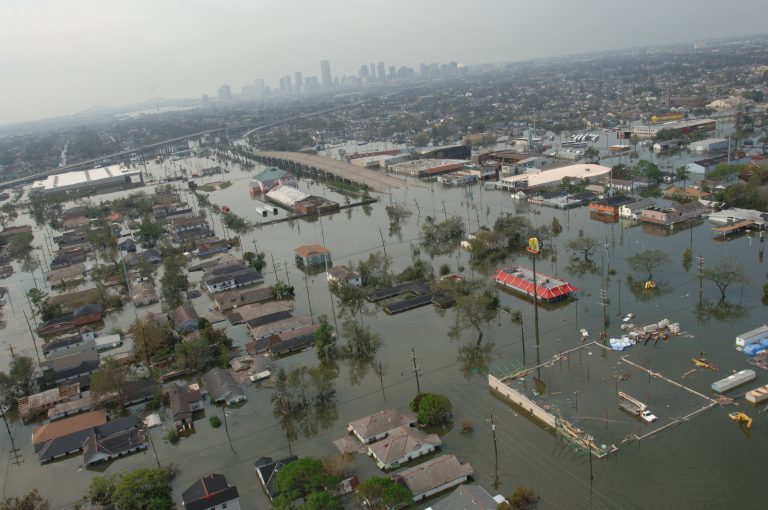Published on June 9, 2022

On May 16th, 2022, Urban@UW’s Urban Environmental Justice (UEJ) Initative hosted a virtual roundtable entitled, “Place and Politics in the Pursuit of Environmental Justice”, examining the ways a changing climate and extreme weather events are giving shape to local places, communities, and politics.
With a recognition that today’s urban challenges are embedded with critical inequities in how people and communities relate to and are affected by their surrounding environments, the Urban Environmental Justice Initiative was created in 2016 to build a network of UW researchers and community leaders from across the region engaging in collaborative work around these issues. In 2021, Rubén Casas, Assistant Professor in Interdisciplinary Arts & Sciences and Urban Studies at University of Washington Tacoma, was newly appointed UEJ Initiative Faculty Lead. Casas’ research in the rhetoric in urban contexts emphasizes the role of the built environment in public life. One key area of focus in both his research and teaching is the way people’s ability to build community and establish a sense of place are materially and symbolically impacted by the processes and practices that have given a city its physical shape and form.
Moderated by the Casas, participants of the 2022 roundtable included Kenneth Walker, author of Climate Politics on the Border: Environmental Justice Rhetorics (2022), Nik Janos, co-editor of Urban Cascadia and the Pursuit of Environmental Justice (2021), and Marisol Cortez, author of the Chicanx cli-fi novel Luz at Midnight (2020) and Co-Editor of Deceleration, a grassroots media project that covers environmental justice news and analysis for South Texas.
The roundtable surfaced themes related to the value of looking at the ways marginalized people and communities have responded to instances of environmental injustice in the past, and how these communities often deploy coalitional responses across difference. This is something that can help leaders—civic and elected—support and assist front-line communities as they continue to bear the brunt of climate change amidst continuing political and racial strife. In bringing scholars from both the U.S.-Mexico border and the Pacific Northwest, the roundtable demonstrated the linkages between seemingly disparate areas and regions, demonstrating the ways climate change and its impacts is redrawing borders and geographies. Within climate change, catastrophic weather events—be they unprecedented heat waves or snow storms—remind us that there is a need to find new and novel ways to conceive of ourselves among others in order to meet the present and coming challenges—and to survive.
Central to the work of these writers and scholars are the contradictions that emerge as people, communities, and politicians pursue, promote, and enact responses and solutions to extreme weather events and in the pursuit of environmental justice. Likewise, these scholars show us how emergent responses that are imbricated in capitalist logics re-inscribe settler-colonial dynamics that further environmental injustice.
Urban Environmental Justice Summer Reading List:
Interested in continuing the conversation around urban environmental justice? Check out the reading list compiled by panelists from the event, featuring with their own work as well as other scholars, activists and authors navigating these important topics.
From our panelists:
Luz at Midnight (2020) by Marisol Cortez
Deeply embedded in the landscapes of South Texas, Luz at Midnight tells the story of an ill-timed love that unfolds in the time of climate change. A genre-hopping narrative that layers story with reporting, poetry, scholarship, and teatro, Luz questions the nature of desire and power, asking: What throws us into the path of those we love, and what pulls us apart? What agency powers the universe-and do we have any agency of our own to create a different world? Learn more here.
Cortez, Marisol. 2020. Luz at Midnight. Flowersong Press.
Urban Cascadia and the Pursuit of Environmental Justice (2021) edited by Nick Janos & Corina McKendry
Urban Cascadia, the infrastructure, social networks, built environments, and non-human animals and plants that are interconnected in the increasingly urbanized bioregion that surrounds Portland, Seattle, and Vancouver, enjoys a reputation for progressive ambitions and forward-thinking green urbanism. Yet legacies of settler colonialism and environmental inequalities contradict these ambitions, even as people strive to achieve those progressive ideals. In this edited volume, historians, geographers, urbanists, and other scholars critically examine these contradictions to better understand the capitalist urbanization of nature, the creation of social and environmental inequalities, and the movements to fight for social and environmental justice. Learn more here.
Janos, Nick; McKendry, Corina. 2021. Urban Cascadia and the Pursuit of Environmental Justice. University of Washington Press.
Climate Politics on the Border: Environmental Justice Rhetorics (2022) by Kenneth Walker
As a borderland city with generations of slow violence and extreme weather events like flash flooding and intense heat waves, San Antonio, Texas, speaks directly to global issues in climate politics. In Climate Politics on the Border: Environmental Justice Rhetorics, Kenneth Walker takes a place-based approach to his study of San Antonio to explore how extreme weather events and responses to them shape local places, publics, and politics, with an eye toward a future characterized by severe climate breakdown. Learn more here.
Walker, Kenneth. 2022. Climate Politics on the Border: Environmental Justice Rhetorics. University of Alabama Press.
Additional Reading:
De Onis, Catalina M. 2021. Energy Islands: Metaphors of Power, Extractivism, and Justice in Puerto Rico. University of California Press.
Ghost, Amitav. 2016. The Great Derangement: Climate Change and the Unthinkable. The University of Chicago Press.
Gilio-Whitaker, Dina. 2019. As Long as Grass Grows: The Indigenous Fight for Environmental Justice, From Colonization to Standing Rock. Beacon Press.
Hernandez, Jessica. 2022. Fresh Banana Leaves: Healing Indigenous Landscapes Through Indigenous Science. Penguin Random House.
Robinson, Kim Stanley. 2020. The Ministry for the Future. Orbit Books.
Seymour, Nicole. 2018. Bad environmentalism: irony and irreverence in the ecological age. Minneapolis: University of Minnesota Press
Wallace Wells, David. 2019. The Uninhabitable Earth: Life After Warming. Penguin Random House.